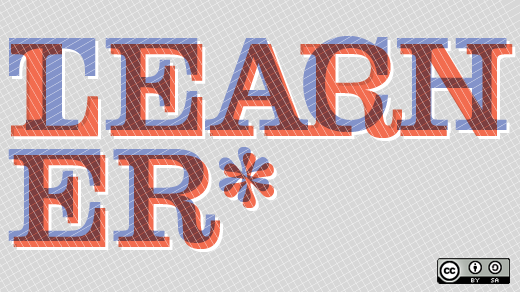Lauren Egts is a student who loves technology. She teaches children and adults alike about computer programming, presenting about Raspberry Pi and Scratch at local area Mini Maker Faires and at the Akron Linux User Group. She's enrolled in the Hathaway Brown School's Science, Research, and Engineering program, and is a member of her school's robotics team, The Fighting Unicorns. She also won a 2014 Ohio Affiliate Award for Aspirations in Computing from the National Center for Women in Technology.
Learn more about Lauren and her ties to the open source way in this Community Spotlight interview.
The Basics
- Name: Lauren Egts
- Opensource.com username: lauren.egts
- Location: Ohio, United States
- Occupation/Employer/Position: Student at Hathaway Brown School
- Open source connection: My dad, David Egts
- Favorite open source tool or application: Scratch
- Favorite opensource.com channel: Education
Open up to us.
I live in Ohio, where I'm a student at Hathaway Brown School. I'm involved in a couple of open source projects, mostly robotics, my local Linux User's Group, and Maker Faires. In robotics, my team, The Fighting Unicorns, uses open source tools to collaborate on building our robot. At the Akron Linux User's Group (ALUG), the first Thursday of every month is essentially a celebration of open source. We gather for dinner, talk about our Linux projects and then someone gives a presentation on a Linux or open source related topic. This year, I've presented Scratch, a visual programming language developed by MIT, at several Maker Faires in my area. At Maker Faires, makers show how to make things. Robotics is a big open source project at the moment. My team just finished build season, the six week long period during which we build, wire, and program our robot, and we are currently taking the robot to competitions. We use GitHub to store and share our code and manage the programming process. We use OpenCV, Python, and a Raspberry Pi as part of our vision code.
What open tools and data help you get things done?
GitHub is an awesome tool for open source projects. My robotics team uses it to share our code with members of the team so we all can work on separate pieces of code at the same time. After build season, we share our code with other teams so they can see how we wrote our code, and we can see how they wrote theirs. Scratch is a great way to build the culture of sharing, and when people already have that base to go onto more complicated languages that can be put onto sites like GitHub. Scratch also has an open source component to it. Scratch is visual programming, meaning that you drag and drop blocks to create a program. In Scratch, you can see other people's code and learn from it. You can also give credit to the code's creator and modify it for your project.
What do you wish were more open?
I'm working with organizations such as HER Ideas in Motion to involve more women in technology. I look forward to a day when not only technology, but minds, are open to women's technological capabilities.
What are the biggest challenges to openness that you encounter?
My biggest open source “challenge” is my age. I'm still a student. The great part about open source is that you are judged on your merit and achievements, not by your age. I have many more programming languages that I would like to learn, but I've got a while yet!
Why choose the open source way?
Open source allows the entire community to learn and grow. Everyone can see what other people are doing and their approach to solving a problem. It's really cool to see how various people find different solutions to the same problem, as you can see with the variety of robots in FIRST competitions. At the first regional that my team and I attended this year, we were astounded at the sheer number of different robots and designs that people had created, not to mention the different ways that people drove and coded their robots! In organizations such as FIRST, and open source as a whole, a culture of sharing and learning is prevalent. Open source is about the community as a whole, not simply one person, and allows every member of the community to improve and grow. Open source promotes a culture of sharing and learning.




Comments are closed.